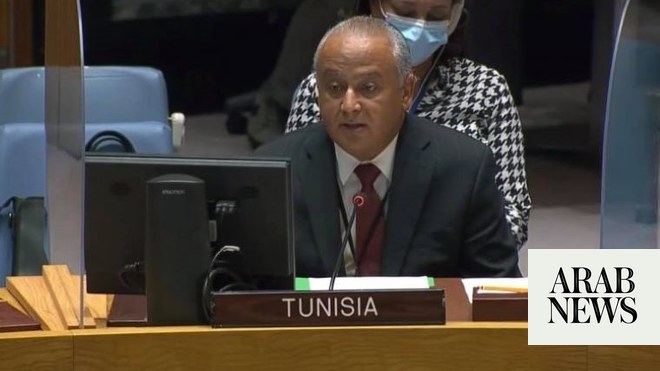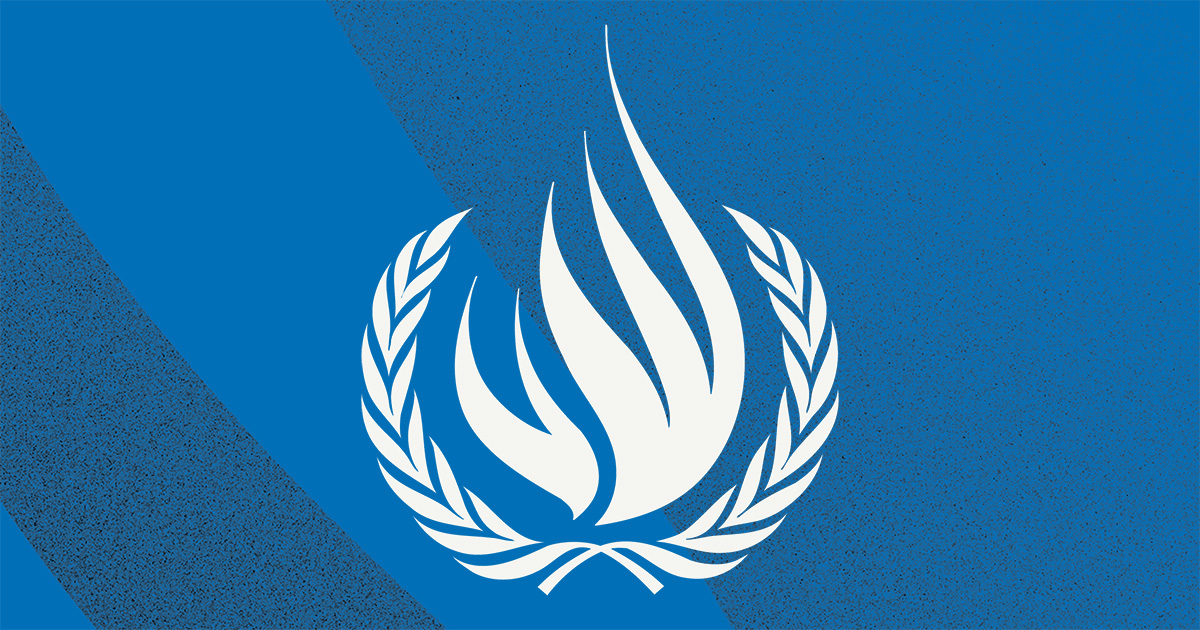
Tarek Ladeb is overseeing eighth UN Global Counter-Terrorism Strategy review
Terrorism and violent extremism continue to grow as a persistent threat’
LONDON: Civil society must play a crucial role in combating terrorism and extremism worldwide, Tunisia’s UN ambassador said on Tuesday.
Speaking at a town hall event, Tarek Ladeb outlined efforts to review UN protocol on counterterrorism efforts.
As co-facilitator of the eighth UN Global Counter-Terrorism Strategy review, together with Canada’s UN Ambassador Bob Rae, Ladek is responsible for overseeing revisions to the strategy.
The GCTS was adopted by consensus in 2006 as a worldwide instrument to combat terrorism.
Ladek told the event at the UN headquarters in New York: “The process of the eighth review of the GCTS is ongoing … It must be made more responsive to current and emerging challenges in relation with new trends of violent extremism.”
He identified the most threatening forms of extremism as “motivated by xenophobia, hate speech, racism, financing of terrorism, misuse of new technologies as well as the gender dimension.”
Ashleigh Subramanian-Montgomery of the Charity & Security Network, together with Marlena Wisniak of the European Center for Not-for-Profit Law, moderated the session, which aimed to “address the crucial role that civil society plays in countering terrorism and violent extremism.”
In his opening comments, Ladek said: “Human rights, gender equality and the rule of law must be at the center of counterterrorism efforts as fundamental factors and enablers of resilience and sustainability.
“Terrorism and violent extremism continue to grow as a persistent threat, taking new forms and trends, and developing new heinous means of murder and terror.
“This scourge can be defeated only through concerted multilateral actions and through a comprehensive approach.”
Ladek named the actors that were most important in the fight against extremism as “civil society, women, youth, victims of terrorism, community leaders, activists, academia and the private sector.”
Ambika Satkunanathan, a Sri Lankan human rights lawyer and former commissioner of the country’s Human Rights Commission, told the panel that a failure by UN entities themselves to adhere to international human rights standards is another “insidious element that corrodes human rights protection.”
This “enables the flouting of human rights standards” by other actors, an issue that must be addressed as part of the GCTS review, she added.
The event took place after member states received the first revision of the draft resolution for the review, and ahead of the second round of negotiations, which will begin on Friday.











